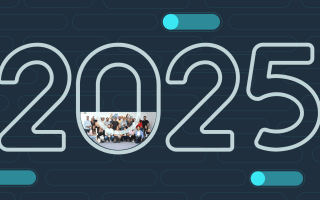
How AI Can Empower the Banking Industry Transformation

Over the years, banks have adapted their operation with the newest technology innovations to improve their customers’ experience. ATMs, card-based payments, and online banking were a few adaptations that helped traditional banks, especially to readjust and keep up with the latest tech trends. Now, we’re living in the AI-powered era, and it is crucial to understand how to use Artificial Intelligence (AI) technologies to empower the transformation of the banking sector.
What is Artificial Intelligence, and how does it work?
AI allows machines to learn and adjust to new inputs and perform tasks like humans. It works by gathering vast amounts of data with fast processing and using an algorithm that allows the software to learn from patterns in the data. AI-powered systems are helping to customize content and services to an individual-preference level – which makes a significant impact on the customer experience – and increase security standards.
A study shows that more than 50% of bank customers believe personalized services are one of the key factors for them to trust their banks; however, only 35% of traditional banks offer a personalized service to their customers. Those numbers can be explained due to the lack of a clear strategy for AI and short investments in operational models that can enable an AI-powered operation.
Why are AI-powered systems crucial for the banking industry?
McKinsey’s research estimates that AI technologies could potentially deliver up to $1 trillion of additional value annually for global banking. AI systems can also help boost revenues by personalizing services and lower costs due to the increased efficiency of internal processes. According to Forbes, one out of three financial services professionals believes AI will improve their company’s annual income by at least 20%.
Regulatory and risk management
Banks tend to be at constant risk due to their business and operation, so regulations and risk management are essential to the industry and occupy a relevant part of their budget. According to the Global Regulatory Outlook 2020, 33% of banks reported to have allocated more than 5% of their annual budget to compliance last year.
AI can help decrease those costs through processes that automatically detect regulatory changes and ensure that the bank remains compliant. Banks can use Artificial Intelligence to create automated Know Your Customer (KYC) processes and verify their customers’ identity once, within seconds, reducing time and potential inaccuracies.
Increased data security
Data security is one of the most critical issues for the banking sector due to the nature of its business. Artificial Intelligence, combined with Machine Learning techniques, act by increasing accuracy and security while decreasing fraud and detecting possible fraud actions before they happen.
A study showed that, on average, one in 123 mortgage applications contained fraudulent information. The annual value of online banking fraud losses in the UK in 2020 was approximately £159.7 million.
Banks can use AI and ML to confirm their customers’ identities and increase accuracy in the identification process, especially for remote operations. With the increase in online operations, the banking sector must rely on technology to assure the accuracy of data and reduce the risk of fraud.
LOQR can enable you to authenticate customers faster by using AI with ML techniques to verify identity documents and compare them with a liveness selfie. Restore home banking access or other services within minutes, 24/7. We also increase the overall security and KYC/AML accuracy while reducing our clients’ costs and increasing their ROI.
Personalized customer experience
Leading banks and neobanks are building their business around AI platforms because they understand the gains and significant impact on their organizations: AI systems add intelligence to existing products and drive innovation further and faster than any other technology before.
The more personalized the service through AI capabilities, the more significant is the retention of customers. A report shows that a large bank that recently used data-driven AI to offer personalized reward programs by predicting their customers’ preferences had an increase of 40% in their reward program usage. The same report shows that other banks that have also applied AI models to predict customers’ needs have increased by almost 30% in sales.
At LOQR, our legal know-how and proprietary AI and Machine Learning (ML) algorithms can be the leading enabler of the digital path to tackle all the missing dots regarding the banking digital onboarding experience.
What to expect next?
The growing adoption of AI techniques is changing the banking industry forever, demanding an urgent movement from traditional banks, especially to adapt and embrace the new technologies. There’s still a considerable challenge to readjust the operation to a new format that prioritizes AI-powered systems but with a promising outcome for the banking sector.
This digital transformation movement has also led businesses and banks to move from a process orientation to a platform orientation model to build better environments.
Those platforms will help them serve customers better and more customized and comply with regulatory changes while delivering frictionless experiences. Besides, the platform will become a key enabler in the banking sector’s future with the upcoming changes such as embedded banking, invisible payments, open data, and more.
LOQR’s end-to-end platform can adapt to the structure of our clients in a plug & play way to help you offer the best digital onboarding experience to your customers. Talk to us and book a demo to know more.
Ricardo Costa, LOQR’s CEO spoke to The Fintech Times to explain how AI works and the benefits it could have in terms of customer loyalty, and security.

